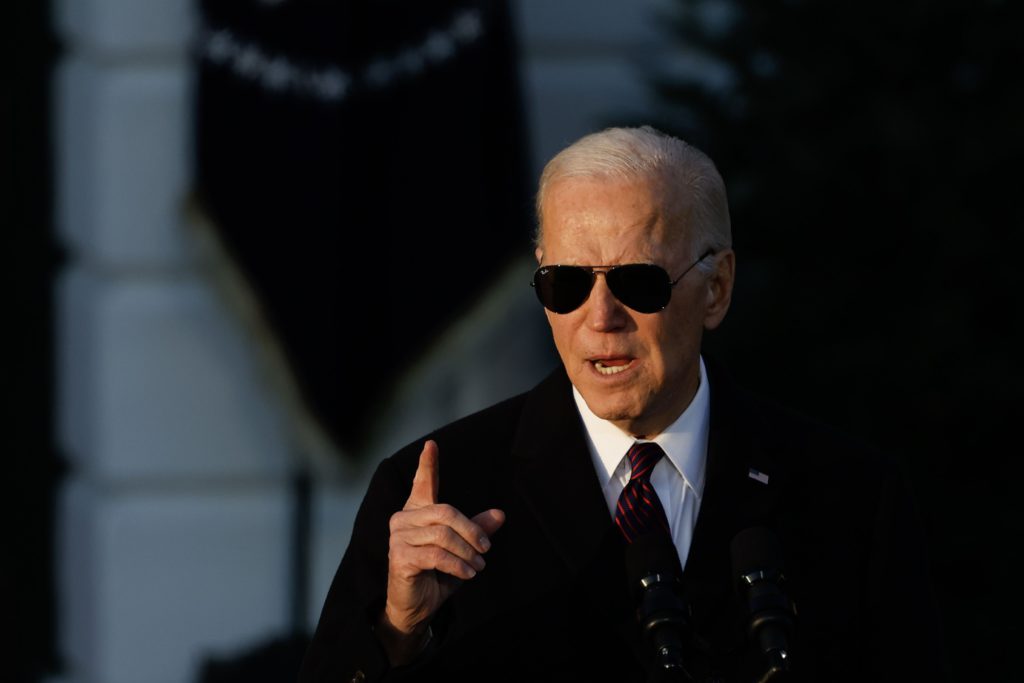Berlin’s response to Joe Biden’s green subsidy plan is setting off alarm bells in Paris and Madrid, where officials are concerned it could give German firms an unfair advantage over their European rivals.
(Bloomberg) — Berlin’s response to Joe Biden’s green subsidy plan is setting off alarm bells in Paris and Madrid, where officials are concerned it could give German firms an unfair advantage over their European rivals.
While the German government is considering a €10 billion ($10.7 billion) package of support for companies switching to green technology, France and Spain want to see European Union leaders come up with a joint response, officials from those capitals said.
Further European funding to protect companies and jobs will be discussed at a summit in Brussels Thursday, the French and Spanish officials said, asking not to be named discussing private conversations. The agenda for the meeting includes energy, security and industrial policy.
Germany has pushed back against calls for a more aggressive European response to Biden’s $369 billion Inflation Reduction Act, arguing instead for streamlining the distribution of existing EU funding. A Spanish official said that while there’s room to work on how funds are disbursed, a stronger response is required to protect industries such as autos that are trying to navigate the switch to electric cars. The two countries could further coordinate their position during a visit by Emmanuel Macron to Madrid in January.
Read More: Germany Backs National Action in Green Subsidy Dispute With US
Berlin had already irked other member states when it unveiled a €200 billion plan to shield German companies and consumers from surging energy prices.
European leaders have warned that the US legislation could hurt European companies. However, EU officials said privately that leaders are wary of fueling tensions with Washington when the US is playing a central role in supporting Ukraine’s fight against Russia. That concern is especially acute in Berlin, where Chancellor Olaf Scholz is keen to revive trade talks between the EU and the US.
During Thursday’s talks, EU leaders may ask the European Commission to assess how much money from the existing budget could be redirected to support EU companies and to look at potential changes to the bloc’s restrictions on state aid, an EU official said. Those discussions may continue at another summit in February.
Read More: EU Can’t Afford Trade War in US Subsidies Clash, Vestager Says
Discussions on Biden’s climate package come as member states are increasingly worried about the loss of competitiveness with US and Asian countries, according to an EU official.
The head of the EU’s executive branch, Ursula Von der Leyen, already suggested topping up existing funds and loans designed to help the bloc become independent from Russian fossil fuels and to weather the Covid pandemic. She also called for the creation of a new “sovereignty fund” for green technologies.
While she did not specify whether this new tool would be funded by joint borrowing, the proposal echoed the jointly backed Covid recovery fund created in 2020, raising worries among more fiscally conservative European member states.
After France and Germany agreed to push forward a proposal for joint borrowing to weather the Covid pandemic in 2020, Macron had already suggested a more ambitious industrial plan based on common debt to match the US response to the pandemic. While France quietly backed down in the face of opposition from partners, the idea remains alive in Paris.
–With assistance from Jorge Valero and Alberto Nardelli.
More stories like this are available on bloomberg.com
©2022 Bloomberg L.P.










